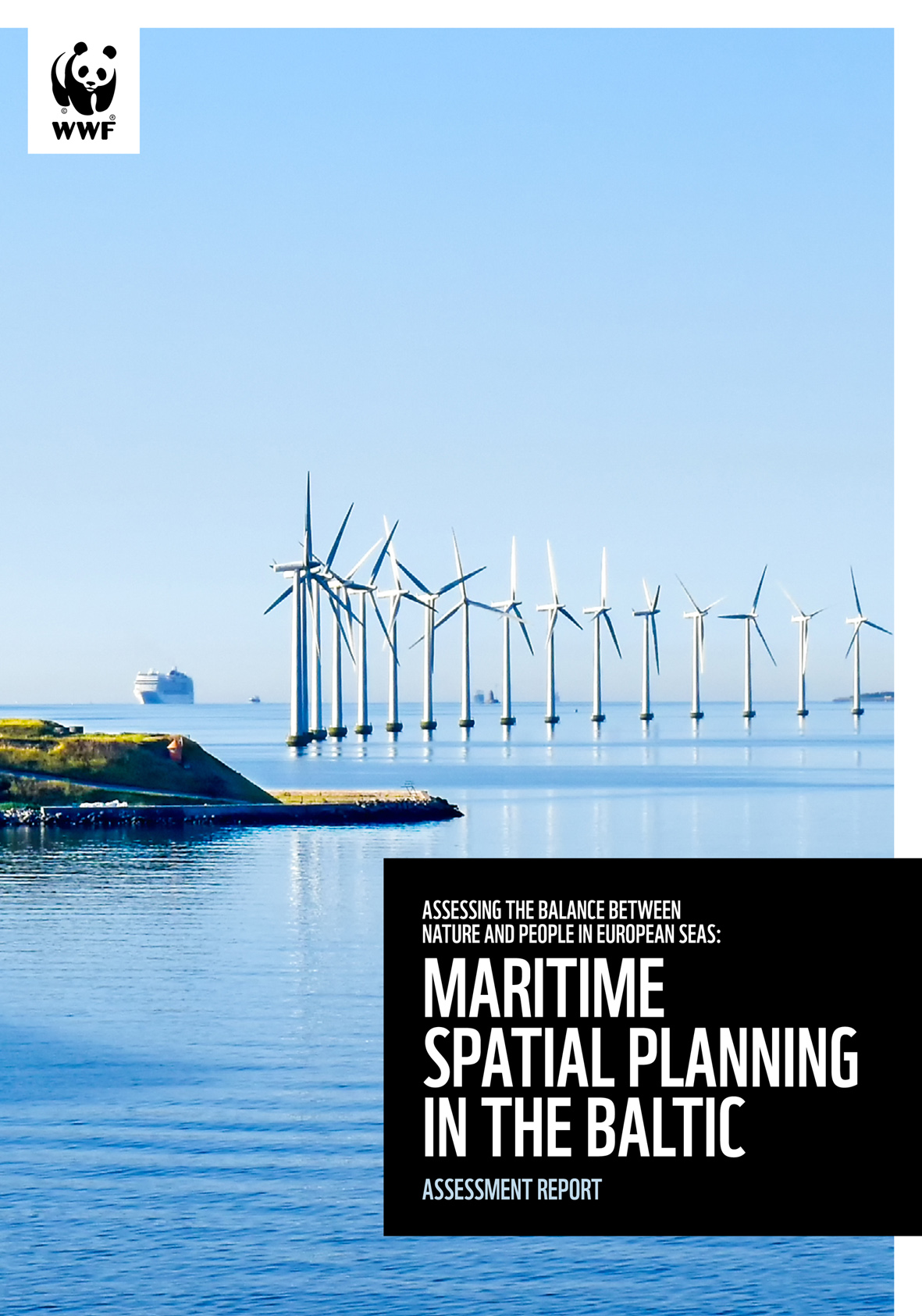
The WWF’s Baltic Ecoregion Programme evaluated Baltic EU Member States’ Maritime Spatial Planning (MSP) strategies for sustainably managing marine areas and resources and concluded that Baltic countries’ plans at sea still lack harmony across borders, and measures to restore and protect ecosystems are inadequate.
The Baltic is the first EU sea basin to establish regional structures (namely the Baltic Marine Environment Protection Commission - HELCOM, and the Vision and Strategies Around the Baltic - VASAB) that support the implementation of the EU MSP Directive at Member State level and to establish an action plan for achieving good environmental status of the sea by 2030 at the latest, as required by EU law. WWF’s assessment reveals that the integration of an ecosystem-based approach - which maintains ecosystems in a healthy, productive and resilient condition against human pressures - is uneven across Member States.
A total of nine maritime spatial plans belonging to eight EU Baltic Sea countries— Denmark, Estonia, Germany, Latvia, Lithuania, Poland, Sweden and Finland —and the autonomous region of Åland, were reviewed to determine the degree to which they are ecosystem-based.
A core element of WWF’s work has been translating the EU’s MSP Directive’s requirements into a set of 33 measurable indicators across four categories, upon which the assessment was based. A national maritime spatial plan is considered to be successfully delivering an ecosystem-based approach to MSP once all indicators are achieved (i.e., scoring 100%).
When put together, the areas Member States have designated for marine protection do not abide by the EU Biodiversity Strategy target of protecting at least 30% of marine and coastal areas, of which 10% should be strictly protected (meaning human access and impacts are strictly controlled and limited). Furthermore, not one Member State plan sets aside space for nature restoration activities in the Baltic and only two countries have partially addressed temporal and spatial uncertainties in the era of climate change.
Where national plans have designated space for offshore renewable energy, which is necessary for achieving climate neutrality by 2040 as per the European Green Deal, the majority of countries failed to consider the impacts of offshore renewable energy infrastructure on ecosystems and wildlife.
A key Baltic MSP success has been in how data is collected, reported and made available through a shared database via the regional sea convention HELCOM. The convention's data hub is a valuable source of MSP knowledge as, in addition to storing spatial data, the environmental status of different sea areas is available and regularly updated by technical experts. This data is essential for Member States to adapt their resource management strategies over time, and thus improve future national maritime plans. The Baltic’s cooperative approach serves as a positive example to other regional seas for how to successfully support an ecosystem-based approach to MSP.
WWF’s assessment lands just ahead of the European Commission’s 31 March deadline to assess the EU Member States’ implementation of the MSP Directive and their national plans. The plans detail their respective strategies for sustainably managing marine areas and resources.
WWF is calling for the Baltic and all EU Member States to ensure their maritime spatial plans secure sufficient space for nature to recover and thrive. This includes leaving offshore renewable energy development out of Marine Protected Areas and establishing transboundary cooperation between Member States to reduce harmful impacts to nature from this type of infrastructure. Finally, stakeholders must be involved and consulted in all phases of MSP, with national plans covering all sea areas and continuously adapted as new data becomes available and new pieces of legislation come into force.
Follow the full report for more details: https://wwfeu.awsassets.panda.org/downloads/wwf___baltic_msp_assessment_2022___full_report.pdf
Originally published by WWF: https://www.wwf.eu/?uNewsID=6106591